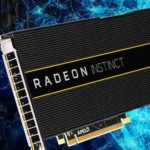The company that built the world’s nos. 2 and 3 most powerful supercomputers is to all appearances backing away from the supercomputer systems business. IBM, whose Summit and Sierra CORAL-1 systems set the global standard for pre-exascale supercomputing, failed to win any of the three exascale contracts, and since then IBM has seemingly withdrawn from the HPC systems field. This has been widely discussed within the HPC community for at least the last 18 months. In fact, an industry analyst told us that as long ago as the annual ISC Conference in Frankfurt four years ago, he was shocked when IBM told him the company was no longer interested in the HPC business per se….
Nearly 1000 AMD GPUs Added to NNSA’s ‘Corona’ Cluster for COVID-19 Research
AMD and Supermicro have upgraded the “Corona” cluster at Lawrence Livermore National Laboratory for COVID-19 drug discovery and vaccine research. The addition of nearly 1,000 AMD Radeon Instinct MI50 GPU accelerators to the National Nuclear Security Administration’s Corona system (named for the solar eclipse of 2017) increases the throughput of the cluster from about 4.5 […]
World’s First 7nm GPU and Fastest Double Precision PCIe Card
AMD recently announced two new Radeon Instinct compute products including the AMD Radeon Instinct MI60 and Radeon Instinct MI50 accelerators, which are the first GPUs in the world based on the advanced 7nm FinFET process technology. The company has made numerous improvements on these new products, including optimized deep learning operations. This guest post from AMD outlines the key features of its new Radeon Instinct compute product line.
New AMD Radeon Instinct Rolls Out to Accelerate Machine Intelligence
“New Radeon Instinct accelerators will offer organizations powerful GPU-based solutions for deep learning inference and training. Along with the new hardware offerings, AMD announced MIOpen, a free, open-source library for GPU accelerators intended to enable high-performance machine intelligence implementations, and new, optimized deep learning frameworks on AMD’s ROCm software to build the foundation of the next evolution of machine intelligence workloads.”






